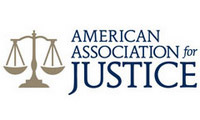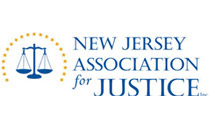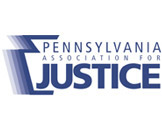 Our New Jersey medical malpractice lawyers say nursing malpractice occurs when a nurse fails to perform medical duties competently and that incompetent failure is a proximate cause of harm to a patient. Nurses can harm patients in many ways, by administering the incorrect medication, by supervising subordinates inadequately or improperly, or by failing to notify doctors of emergent situations as examples.
Our New Jersey medical malpractice lawyers say nursing malpractice occurs when a nurse fails to perform medical duties competently and that incompetent failure is a proximate cause of harm to a patient. Nurses can harm patients in many ways, by administering the incorrect medication, by supervising subordinates inadequately or improperly, or by failing to notify doctors of emergent situations as examples.
In nursing malpractice, often a key issue under the legal doctrine of respondeat superior is who should be liable for the nurse’s negligence, the nurse’s employer, an insurer, a physician, or the hospital or medical facility where the patient suffers the harm. Whoever is liable must compensate the patient for the nurse’s incompetence.
Elements of Nursing Malpractice
Like medical malpractice by physicians, medical malpractice by nurses happens when a nurse does not discharge duties as a reasonably competent nurse in similar circumstances would discharge them and the failure causes injury to a patient. Of course, not every error or misadventure in a hospital, clinic, or physician office is a result of negligence.
Nursing malpractice is a distinct possibility at any time or place, but some situations tend to be among the most common:
- Taking No Action When Action Is Clearly Necessary. Nurses are often the first line of protective defense for their patients. In a sudden emergency, a cardiac arrest or a seizure as examples, a nurse may be liable for not taking appropriate action as necessary to confront the threat. Similarly, a nurse has a duty to be attentive and aware of the patient’s condition. A nurse who notices or should notice something of urgent importance and fails inexcusably to notify the attending physician may be liable for malpractice.
- Injuring a Patient with Medical Equipment. A nurse who injures a patient by careless misuse of medical equipment may be liable for malpractice. Such mishaps happen in various ways, by causing something heavy to fall on a patient, by burning a patient, or by leaving something extraneous inside a patient following surgery.
- Improper Administration of Medications. Administering medication according to the physician orders and prescriptions is an everyday nursing task. A nurse who fails inexcusably to execute the orders and administer drugs as prescribed may be liable for malpractice if a patient suffers injury as a proximate result. Negligent execution of proper orders, injecting a drug into the wrong body part or the wrong patient as an example, is another instance of nursing malpractice.
Who May Be Liable?
A frequent liability issue in nursing malpractice cases, says one New Jersey medical malpractice lawyer, is the person or entity legally responsible for damages generated by the nurse’s negligence, the medical facility or the attending physician.
- The Medical Facility. A hospital may be legally and financially responsible for nursing malpractice damages if
- the nurse was an employee of the hospital
- the nurse was on duty when the patient was injured, and
- a physician not employed by the hospital did not supervise the nurse.
Because most nurses are hospital employees, hospitals are frequent defendants in nursing malpractice lawsuits.
- The Attending Physician
- If an attending physician supervises a negligent nurse, the hospital may be beyond liability even as the nurse’s employer. Whether the nurse works under the physician’s supervision when the tort takes place depends on
- whether the physician was present at the scene of the tort and
- whether the physician had the ability to prevent the negligent act or omission.
As an example, during surgery a nurse gives the patient too much medication, and the overdose makes the patient deathly ill. The surgeon could be liable for the patient’s damages claim as present when the nurse made the improper pharmaceutical administration and as responsible for all aspects of the surgery.
The question of whether the physician had sufficient control at the time of the negligence to prevent it is normally an issue between the physician and the medical facility. The outcome of the dispute has no effect on the injured patient’s claim for damages, just on who pays them. Even if the physician supervised the nursing aspect of the surgery, the hospital still might be liable if the physician gave erroneous orders, the nurse knew or should have known of the error, but nevertheless followed the orders to the patient’s misfortune.
As another example, a nurse notifies a physician not present that a patient is reacting adversely to a blood transfusion. The physician, however, orders the nurse to continue the transfusion. The nurse defers to the physician and the transfusion harms the patient. If a reasonably competent nurse would stop the transfusion despite the physician’s orders, the hospital and the physician may be jointly liable for the malpractice.
Expert Testimony
The same malpractice rules for physicians apply to nurses. Both sides in most cases need qualified medical experts to testify as to what a reasonably competent practitioner would do in similar circumstances and whether the negligence was the proximate cause of the patient injury. In many jurisdictions, a medical expert on nursing malpractice cannot be simply any physician but to be qualified must be someone specifically knowledgeable and experienced in the particular practice at issue. In rare but occasional malpractice cases, negligence is so undeniably clear that there is no need for medical expert testimony.
Consult a New Jersey Medical Malpractice Lawyer
Too many medical facilities and nursing homes are either understaffed or served by employees without the skills necessary for proper patient care. Nursing malpractice causes needless injuries from negligence or carelessness of nursing home employees or operators, but medical malpractice cases are complicated, require testimony from experts, and are virtually impossible to prove without the professional assistance and representation of skillful, experienced New Jersey medical malpractice lawyers.
Attorneys at the Law Offices of Neal S Axe have more than 90 years of combined experience handling personal injury cases for claimants in New Jersey and Pennsylvania. They work closely with clients at all times to keep them informed and involved, explaining the law, legal processes, client options, and prospects for success for sound, sensible decisions about how to move forward. Call 215-784-1666 or 856-795-8788 to schedule a free case consultation with a New Jersey medical malpractice lawyer.






